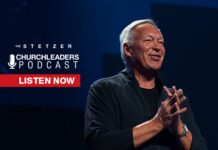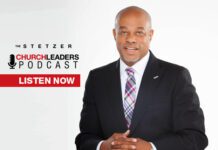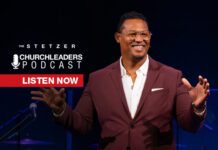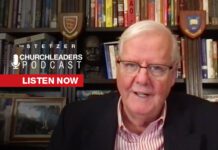“I don’t give myself credit for coming back to God. I give God credit for extending grace. That’s why I write about grace so much. Because when God met me, it wasn’t of my doing.”
“The worst thing that my childhood church did was give me the wrong picture of God. I saw God as this cosmic bully who just loves crushing people and catching them and punishing them.”
“What reached me was realizing that God was a lot different than I was taught growing up and things like nature, beauties of nature, and classical music and romantic love. Those are the things that softened me.”
“Having one mentor who really shows what an abundant life with God looks like can make all the difference.”
“I had this conversion experience where I realized that I was the most arrogant person on campus and I was missing the whole point. I didn’t get grace. I had never experienced grace before.”
“A lot of my reaction in teenage years was was the survival technique just to withdraw, to create a shell around myself, to somehow survive, which people who are abused, people who go through wounding church experiences have to do.”
“The civil rights movement of the 60s was mostly led by ministers…they’re preaching nonviolence and they’re preaching love and they’re preaching brotherhood. I don’t see that now. We’re still dealing with the same issues from the 60s, but with a harsher adversarial tone. It’s a very different thing, and I don’t know where it’s going.”
“For whatever reason, God did include me in that lavish grace at a time when I wasn’t really seeking it. And all I can say is this happened. I can’t really explain it. And I certainly couldn’t at the time. But it happened. And it’s true, and I’ve tried to live faithful to that ever since.”
“Grace is something that we just have to keep rediscovering, don’t we? Because the church becomes so easily, it becomes a moralism place, a place of looking down on other people.”
“The heroes of the parables are the wrong people. You know, they’re not the good rabbi, they’re the good Samaritan. They’re not the good boy, they’re the prodigal son. And that message is just pounded again and again. And yet it’s something we need to keep learning again and again.”











